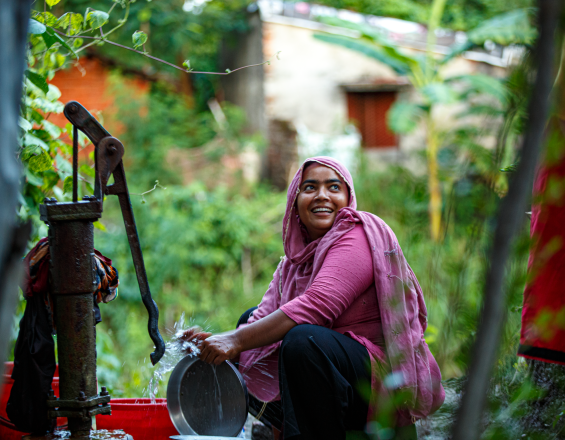
Urban Labs for inclusive Urban Environmental Management Services (UEMS)

Urban Environmental Management Services (UEMS) include the management of solid wastes, green spaces (parks, open spaces, playgrounds) and blue spaces (ponds, canals, rivers) in cities. They are crucial for adapting urban areas to climate change, protecting the environment and sustaining residents' health and livelihoods.
The Urban lab concept offers effective solutions to the nexus of green /blue spaces and solid waste management. It aims at bringing together a diverse group of local civil society, private sector actors and policy makers to develop and test out integrated measures (e.g. for institutional management, integrated technical concepts, adapted technologies) for inclusive UEMS. This approach helps to make UEMS sustainable and well-adapted to the needs of a specific urban area. and raises awareness for the importance of environmental protection here. it also fosters cooperation at household level.
Impacts
Well-managed and clean green and blue spaces harbor potential for adapting cities to the impacts of climate change.
The physical and mental health of urban populations can benefit as well. Open and greened areas foster a more active lifestyle and sense of well-being which, in turn, can lower blood pressure and cortisol levels as well as reduce the risk of type-2-diabetes and premature labor. In addition, improved waste management reduces the risk of pests (rodents) and, therefore, the transmission of pathogens.
The involvement of the private sector can generate new and innovative business ideas, public-private partnerships, and possibilities for income generation for poor population groups. The improved environmental situation and greater urban capacity for adaptation will reduce economic losses caused by the impacts of climate change as well as the likelihood of economic cycles being disrupted by environmental disasters.
Since Urban Labs constitute a participatory approach they require dialogue and collaboration of different population groups. They can, therefore, build and strengthen local communities.

